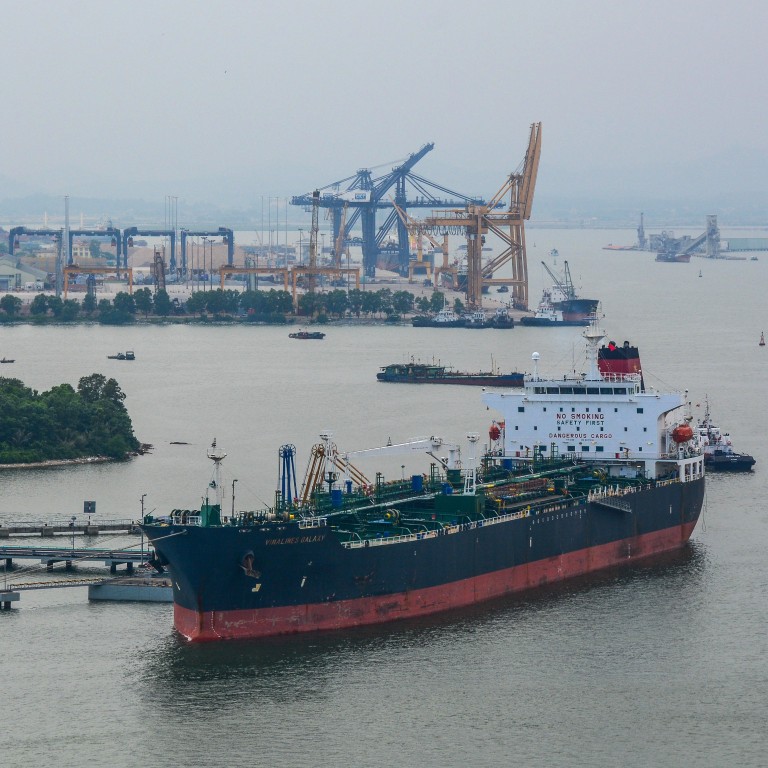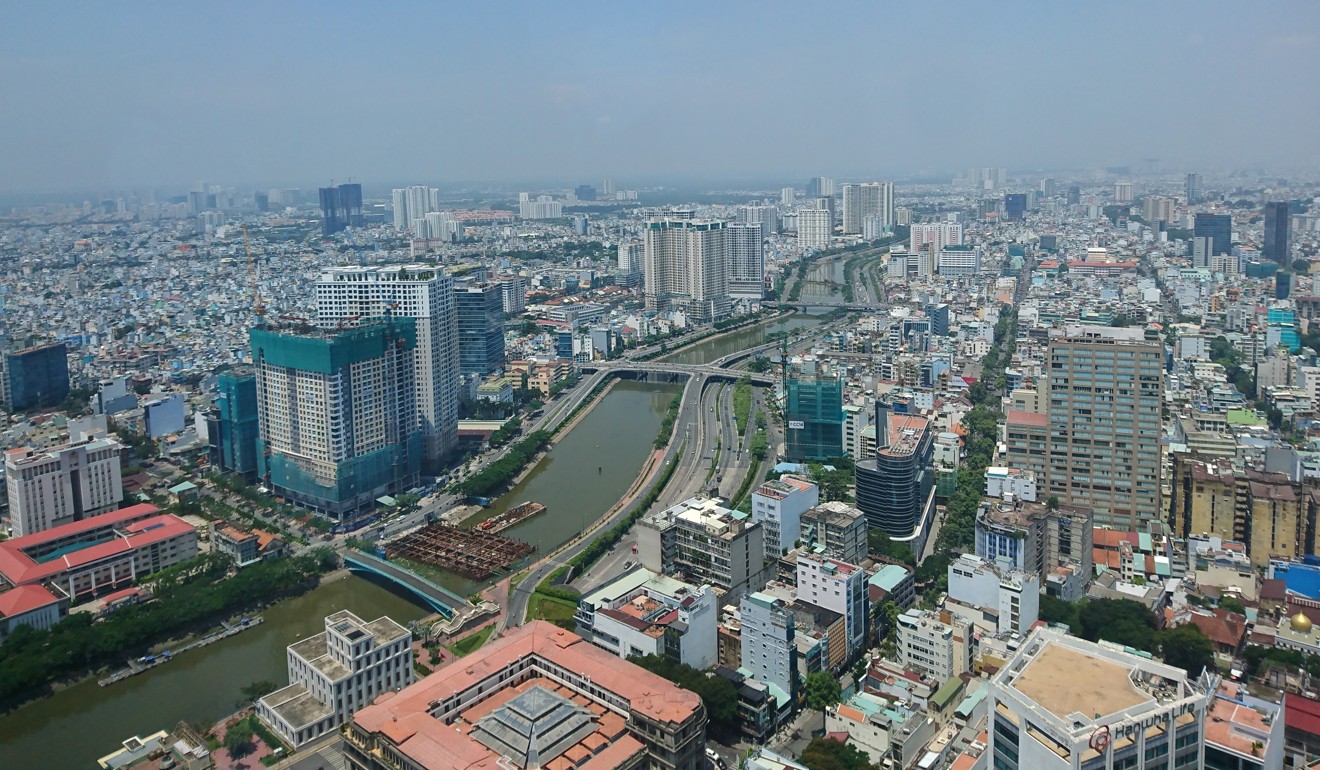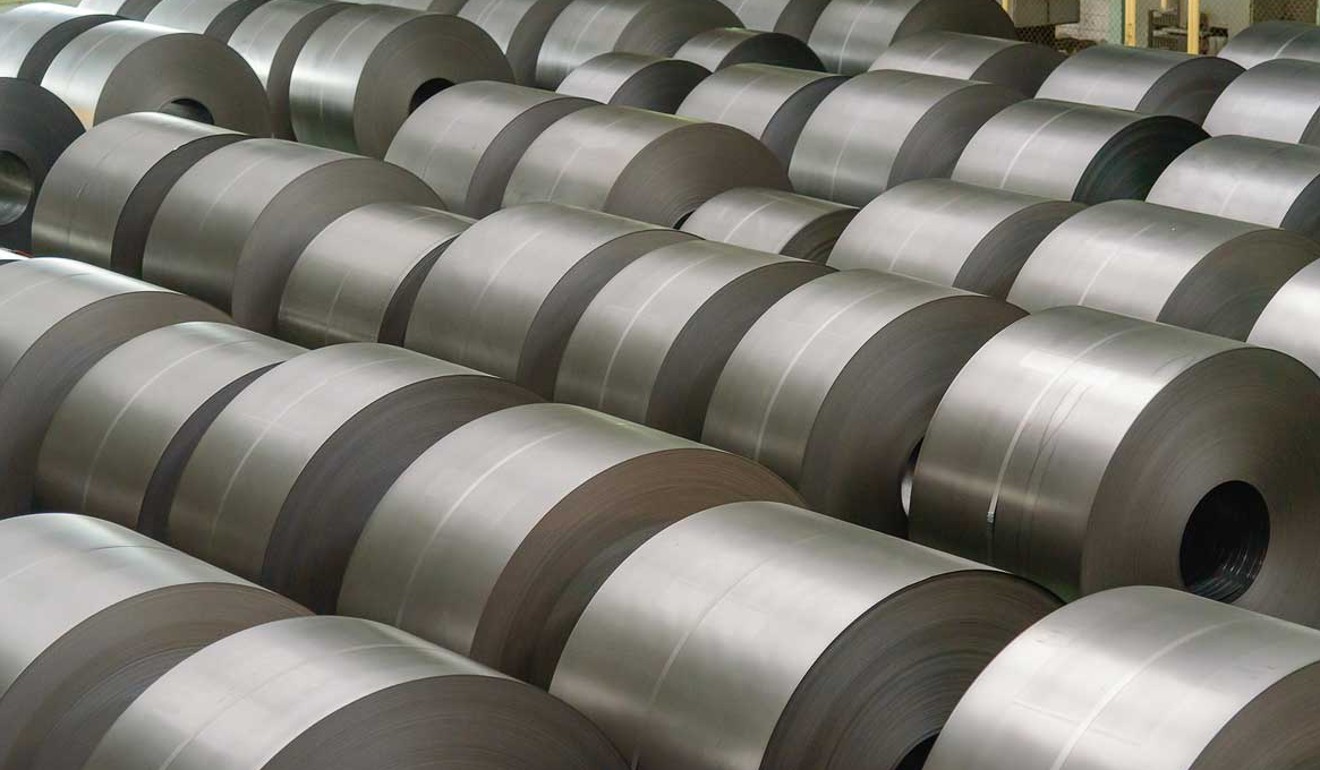
Vietnam tested by multinationals seeking trade war detour to avoid US tariffs on China
- American officials aware of schemes to ship goods through the Southeast Asian nation
- US President Donald Trump levied tariffs on US$200 million of exports from China in September
It looked like a one-off case in late 2016 when The European Anti-Fraud Office determined that certain organic coated steel products that originated in China had been shipped through Vietnam to avoid anti-dumping duties.
The fraud unit advised nine European countries on how to recover around €8.2 million (US$9.31 million) in anti-dumping and other import duties that it said had been “evaded,” according to a spokeswoman.
But the idea of shipping through a third country to avoid tariffs has flourished in recent months due to the trade war between the United States and China, and multiple companies producing products in China are exploring Vietnam to find out how they might do so.
To do this, they are actively checking whether they can legally re-label products made in China as made in-Vietnam goods under different product headings or even by just sending them to Vietnam for a simple transfer to the United States, several businesspeople and a foreign diplomat said.
“A lot of our clients are asking whether they can basically transit goods through Vietnam, so taking shoes and bringing them through Vietnam and then exporting them to the United States,” said Maxfield Brown, senior associate with Dezan Shira & Associates in Ho Chi Minh City.
“The most popular follow-up question to ‘can we ship goods via Vietnam’ is whether we can reclassify our products and will the US government notice, and the answer is ‘yes’. As the trade war goes on, the chances of you getting caught in the net are pretty high.”

Multinationals, many headquartered in developed parts of Asia, have examined Vietnam with particular intensity since September when the United States levied tariffs on US$200 million of exports from China, the largest single move in the trade conflict hatched this year under US President Donald Trump.
Before the trade war, Vietnam was attractive to foreign investors because of its cheap labour, pro-business government policies and proximity to China, with the potential to now avoid US tariffs an extra incentive.
Vietnam’s foreign direct investment reached US$3.6 billion in the second quarter of 2018, up from US$3.1 billion in the first and well above the US$150 million in the first quarter of 2002.
Business analysts in the financial centre of Ho Chi Minh City said the US government is closely watching a handful of sectors in Vietnam for any goods that originate in China.
“The idea that the US might fall for that is pretty naive, and allowing that to happen is likely to get Vietnam in more trouble as a result,” said Kevin Snowball, chief executive officer with PXP Vietnam Asset Management in Ho Chi Minh City.
Manufacturers that simply rent a warehouse in Vietnam, instead of buying property and installing production equipment, will be suspected of transiting goods from China or “laundering the label” to change a product’s description before export, said Tai Wan-ping, international business professor at Cheng Shiu University in Taiwan.
“If they just rent a warehouse, you’ve got to imagine it’s fake. They’ll just pass [the products] on to America,” said Tai, who specialises in Vietnam and believes some of the offending companies to be Taiwanese.
For example, some steel coil shipped to the United States from China via Vietnam showed little value added, said Fiachra MacCana, research head at stock brokerage company Ho Chi Minh City Securities.

The US embassy in Hanoi declined to comment, but in May the US Commerce Department announced tariffs of at least 39 per cent on imports of corrosion resistant and cold-rolled flat steel from Vietnam due to suspicion that it had been produced elsewhere.
The value of imported cold-rolled steel shipped from Vietnam to the United States has risen from US$9 million to US$215 million after the US government levied anti-dumping penalties on China, while the value of corrosion resistant steel imports has grown from US$2 million to US$80 million.
Vietnam has a US$35.8 billion trade surplus with the United States.
Exporters from most countries now pay a 25 per cent tariff on steel shipped to the United States, and in September, the US government included steel goods from China in a round of 10 per cent tariff increases.
Companies hoping to avoid tariffs against China should do the “correct amount” of additional value-added manufacturing in Vietnam so that the United States considers the good as Vietnamese, said Dezan Shira & Associates’ Brown.

